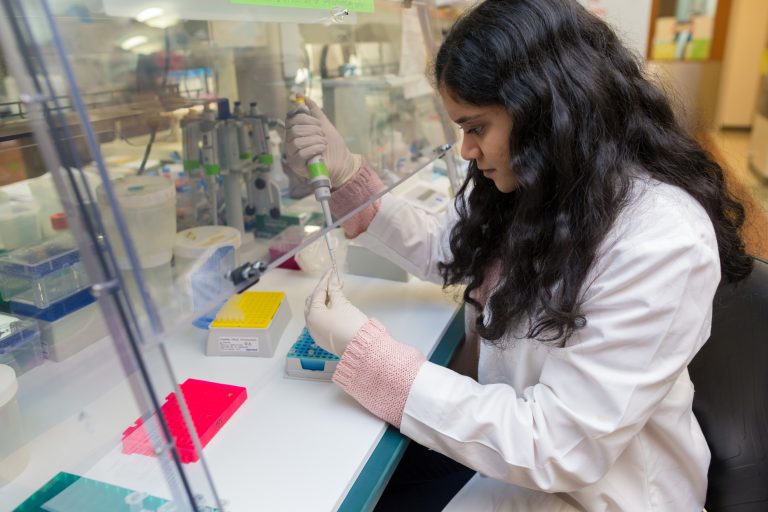Current Postdoctoral Trainees
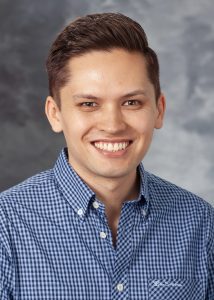
Robert Fujiki, PhD, MS
Faculty Mentor: Susan Thibeault, PhD
I completed my PhD at Purdue University under the mentorship of Dr. Preeti Sivasankar. My doctoral work focused on quantifying and mitigating the effects of vocal exertion with the long-term goal of improving vocal endurance and preventing laryngeal pathology. Prior to studying at Purdue, I received an MS in communication disorders under the mentorship of Dr. Kristine Tanner and a BFA in musical theater, both from Brigham Young University. I also completed my clinical fellowship in speech-language pathology in the UW-Madison Voice and Swallow Clinic.
I chose to pursue postdoctoral studies at UW-Madison because I am impressed by how the scientists and clinicians here collaborate to better understand voice and swallowing disorders, vocal fold physiology, and development. During my postdoc, I am working to better understand pediatric voice disorders and develop expertise performing clinical research. I am thrilled to work under the mentorship of Dr. Susan Thibeault and am grateful to work with the amazing scientists and clinicians who make up the UW-Madison team.
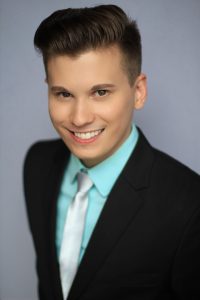
Charles Lenell, PhD
Faculty Mentors: Michelle Ciucci, PhD and Nathan Welham, PhD, CCC-SLP
I received my PhD from New York University. My primary mentor was Dr. Aaron Johnson who was a previous trainee with this program. During my doctoral program, my research projects focused on evaluating the effects of age, exercise, and hormones on the laryngeal mechanism. Since joining the Voice Research Training Program at the UW-Madison as a postdoctoral fellow, I am working on projects that investigate the role of sex hormones on laryngeal biology under the primary mentorship of Dr. Michelle Ciucci. I hope to build my basic science methodological skills to enable me to ask novel questions about vocal fold biology and physiology. My goal is to publish research articles and apply for research grants that support my line of research in the evaluation and treatment of laryngeal disorders.
I was drawn to UW-Madison because the ability to collaborate with and learn from experts in field. During my doctoral program, I often cited the works of Drs. Nadine Connors, Michelle Ciucci, Susan Thibeault, and Nathan Welham; and now as a postdoctoral trainee in the Department of Surgery, I have the honor of working with these individuals. During these first few months as a postdoctoral trainee, I have enjoyed how open the faculty has been to collaborate with me and include me in their lab meetings.
Current Predoctoral Trainees
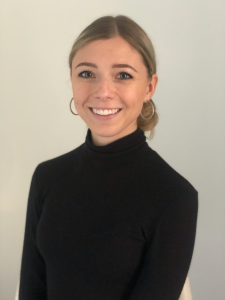
Maryann Krasko, MS
Faculty Mentor: Michelle Ciucci, PhD
I am a doctoral student in the Department of Communication Sciences. My primary areas of interest are concerned with the neurobiological underpinnings of upper airway disorders, such as voice and swallowing dysfunction, in the prodromal stage of Parkinson disease (PD). I am also interested in the study of the gastrointestinal system and its role in the pathogenesis of PD.
Since beginning my doctoral training, I have contributed to a larger body of work that investigates different therapeutic approaches and their roles in modulating noradrenergic systems for the improvement of vocal, cognitive, and affective dysfunction in mid-stage PD. Ultimately, I aim to characterize early-stage deficits, relate them to pathology in the brain and periphery, and determine how induction of inflammation may affect the onset and progression of vocalization, swallowing, and gastrointestinal dysfunction.
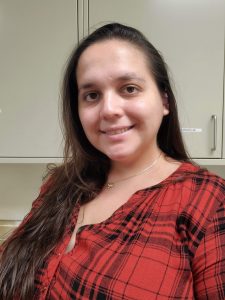
Cristina Paz, MS
Faculty Mentor: Randy Kimple, MD, PhD
I am a second-year graduate student in the Cancer Biology training program at the University of Wisconsin-Madison. I am pursuing my thesis research in the lab of Dr. Randall Kimple. I am highly motivated to pursue an academic research career in the intersect of the fields of oral health and cancer biology. During my training I plan to learn how to independently design experiments to tackle important scientific questions, refine and expand my technical skills in the lab, and improve on my writing and communication skills.
My project within the Kimple lab focuses on a condition known as Radiation Induced Xerostomia (RIX); a subjective sensation of dry mouth which can be accompanied by salivary gland dysfunction and is one of the most common long-term side effects of head and neck radiation. Head and neck cancers are among the most common cancers in the world, radiation is used in the treatment of nearly 80% of HNC patients. Due to the anatomy of the head and neck, vital tissues, like salivary glands, are difficult to spare during radiotherapy and leading to permanent damage in many patients. RIX causes issues with speaking, swallowing, oral hygiene and overall decreases the quality of life in affected patients. Current treatments available for RIX are mostly palliative or cause severe side effects. There is a critical need for effective and safe therapies to prevent or alleviate RIX. The main aim of my project is to evaluate the impact of mesenchymal stromal cell (MSC) therapy in RIX mouse models. MSCs are known to have reparative properties in damaged tissues and we believe they may be critical in the development of novel therapies for RIX.
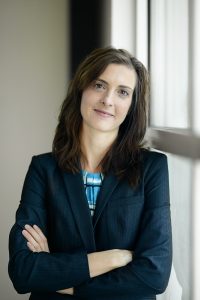
Kristy Wendt, MS
Faculty Mentor: Susan Thibeault, PhD
I am a Biomedical Engineering predoctoral trainee in the Voice Research Training program under the mentorship of Dr. Susan Thibeault. The overall purpose of my research is to assist efforts in the Thibeault lab to engineer functional vocal fold (VF) epithelium from human induced pluripotent stem cells (hiPSC).
Unique tissue features of the mature VF are closely integrated with a remarkable physical function: to vibrate symmetrically and regularly at multiple frequencies. The regularity of these harmonics is controlled by characteristics specific to the tissue: tension, elasticity, and mass, as well as the action of laryngeal muscles that contract and relax to raise and lower the frequency of the human voice.
At the cellular level, the luminal surface of the VF serves to protect these functional characteristics of the tissue. The Thibeault lab has already identified a number of VF prenatal cues and continues to optimize approaches to guide differentiation of stem cells toward mature VF epithelium. New single cell scRNAseq methods offer exciting applications to discover how the transcriptome changes in space during development to enhance our in vitro approach. The emphasis and efficacy of the Voice Research Training Program in translating biomedical engineering research to the clinic drew me to the program within the Department of Surgery.
I am a mother to three children in Madison Wisconsin, a Python hobbyist, and a Fourier and medical imaging enthusiast. I evangelize the Fourier algorithm and Python coding for all ages on my personal website: daytodayfourier.com.
